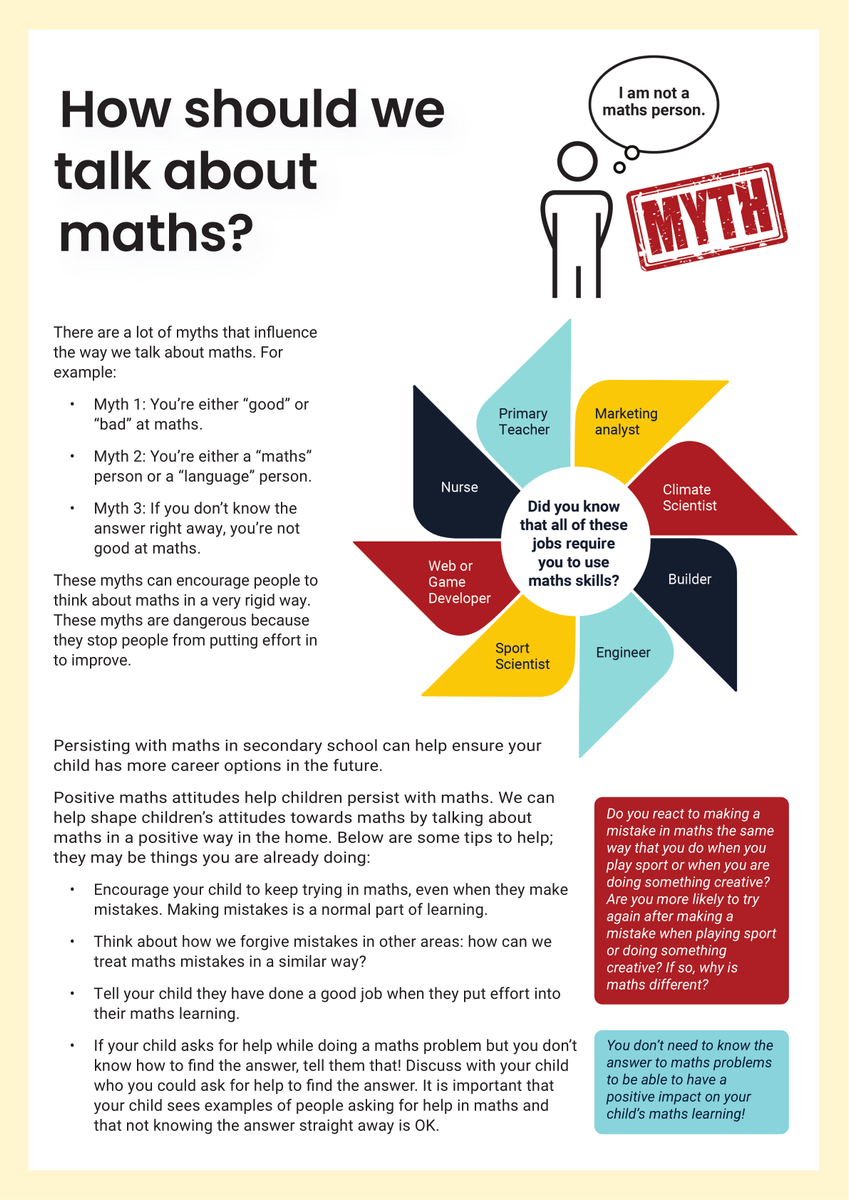Numeracy

Understanding Maths Anxiety: How We Can Support Our Children
At Old Orchard Primary School, we believe every child has the potential to succeed in mathematics. However, for some students, maths can be a source of stress and anxiety, leading to a fear of making mistakes, a lack of confidence, and even avoidance of the subject. This is known as maths anxiety, and it can impact a child’s ability to engage with and enjoy learning. Fortunately, there are strategies that both teachers and parents can use to support children and help them develop a positive relationship with maths.
What is Maths Anxiety?
Maths anxiety is a feeling of tension, apprehension, or fear that interferes with a student’s ability to perform mathematical tasks (Ashcraft & Krause, 2007). It can manifest in various ways, including:
- Avoiding maths-related activities
- Feeling overwhelmed when faced with numerical tasks
- Experiencing physical symptoms such as sweating or an increased heart rate
- Struggling with problem-solving due to self-doubt
It is important to distinguish between a genuine difficulty with maths and anxiety that prevents a child from engaging with the subject. Research suggests that even students with strong mathematical ability can suffer from maths anxiety (Dowker, Sarkar, & Looi, 2016).
How We Address Maths Anxiety in the Classroom
At Old Orchard Primary School, we use a range of strategies to support students who experience maths anxiety:
- Creating a Positive Learning Environment – We encourage a growth mindset by celebrating effort, persistence, and learning from mistakes. Students are reminded that making mistakes is a natural part of the learning process (Dweck, 2006).
- Using Hands-on and Visual Learning Tools – Manipulatives, visual representations, and interactive activities help students build understanding and confidence.
- Encouraging Collaborative Learning – Group activities and peer discussions allow students to verbalise their thinking and develop problem-solving skills in a supportive environment.
- Providing Alternative Assessment Methods – We use a variety of assessment approaches, such as oral discussions and open-ended problem-solving tasks, to reduce pressure on students.
How Parents Can Help at Home
Parents play a crucial role in shaping their child’s attitude towards maths. Here are some ways to help reduce maths anxiety at home:
- Model a Positive Attitude – Avoid sharing negative experiences with maths and instead express confidence in your child’s ability to learn.
- Make Maths a Part of Everyday Life – Incorporate maths into daily activities such as cooking, shopping, or measuring distances to show its real-world relevance.
- Use Games and Technology – Maths puzzles, apps, and board games can make learning fun and engaging.
- Encourage a Growth Mindset – Praise effort rather than just correct answers, reinforcing the idea that persistence leads to improvement.
- Support Without Pressure – Offer guidance and encouragement but avoid creating high-stakes situations that might increase anxiety.
Seeking Further Support
If you are concerned about your child’s maths anxiety, please speak with their teacher. Together, we can work towards building confidence and fostering a love of learning in mathematics.
By working collaboratively, we can help all children at Old Orchard Primary School feel capable and empowered in their mathematical journey.
For more information follow the link and have a listen to the Podcast provided by The Academy
If you have any questions feel free to contact me craig.gooding@education.vic.gov.au
Craig Gooding
Learning Specialist
References
- Ashcraft, M. H., & Krause, J. A. (2007). Working memory, math performance, and math anxiety. Psychonomic Bulletin & Review, 14(2), 243-248.
- Dowker, A., Sarkar, A., & Looi, C. Y. (2016). Mathematics anxiety: What have we learned in 60 years? Frontiers in Psychology, 7, 508.
- Dweck, C. S. (2006). Mindset: The new psychology of success. Random House


